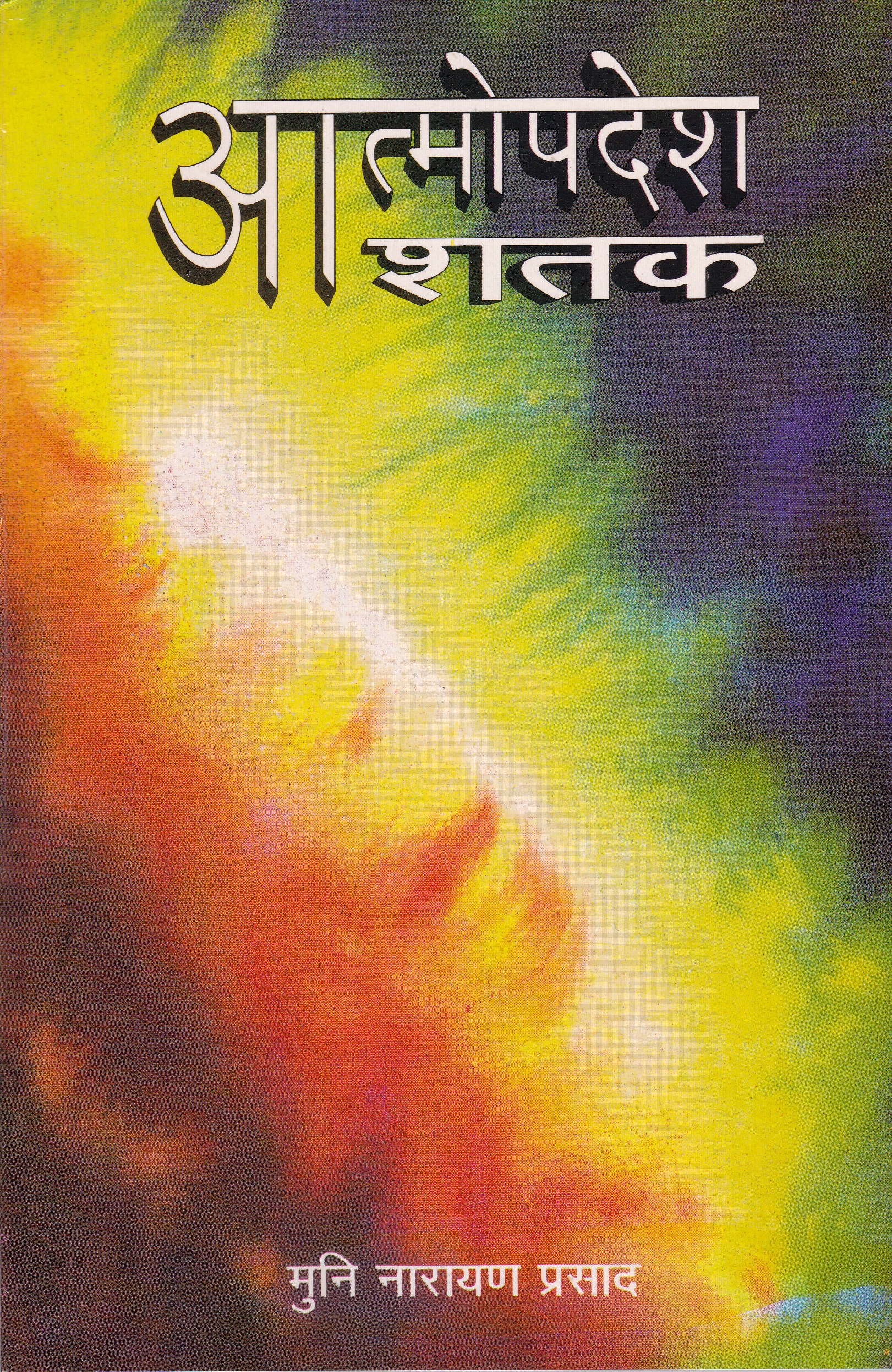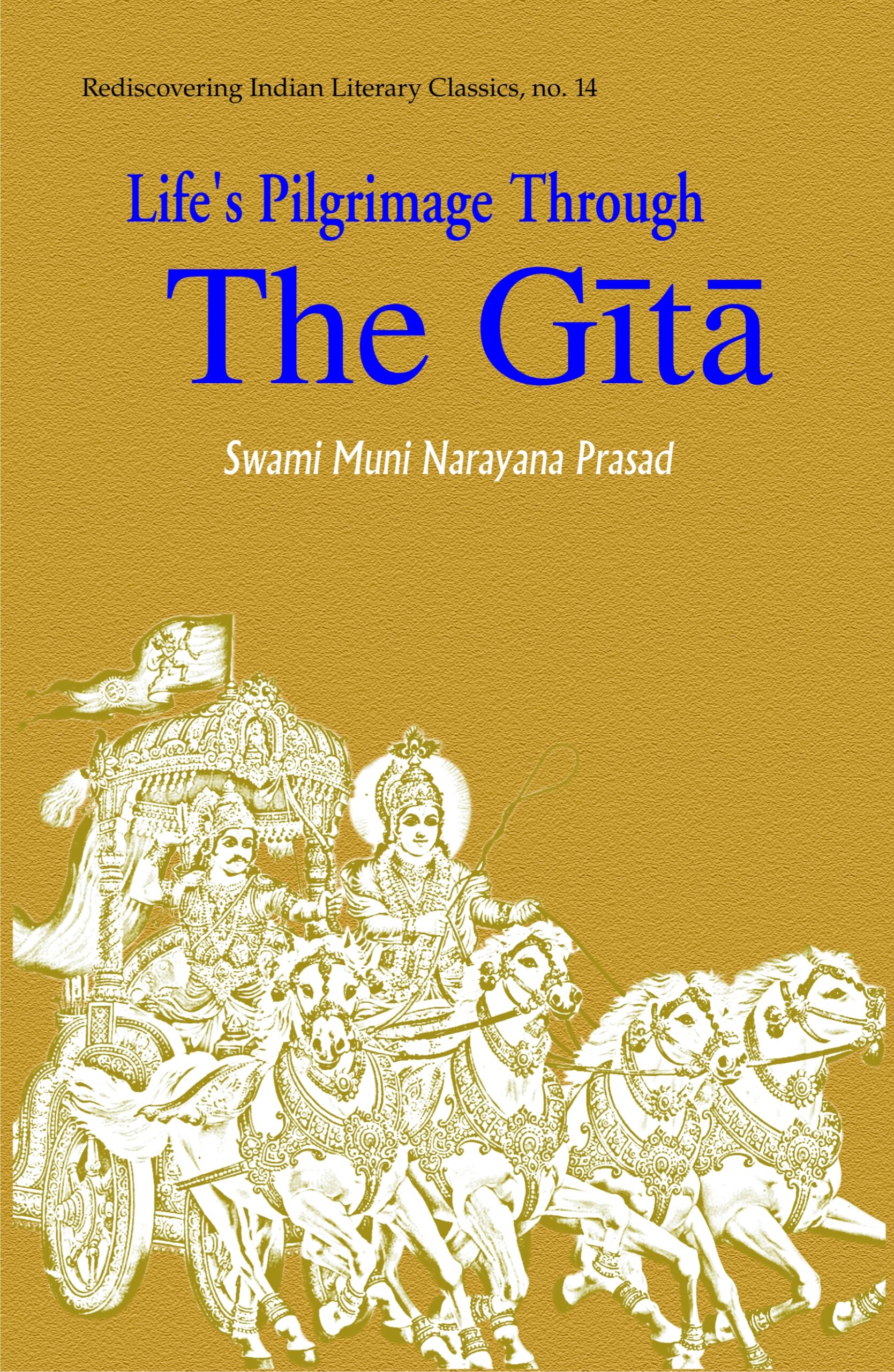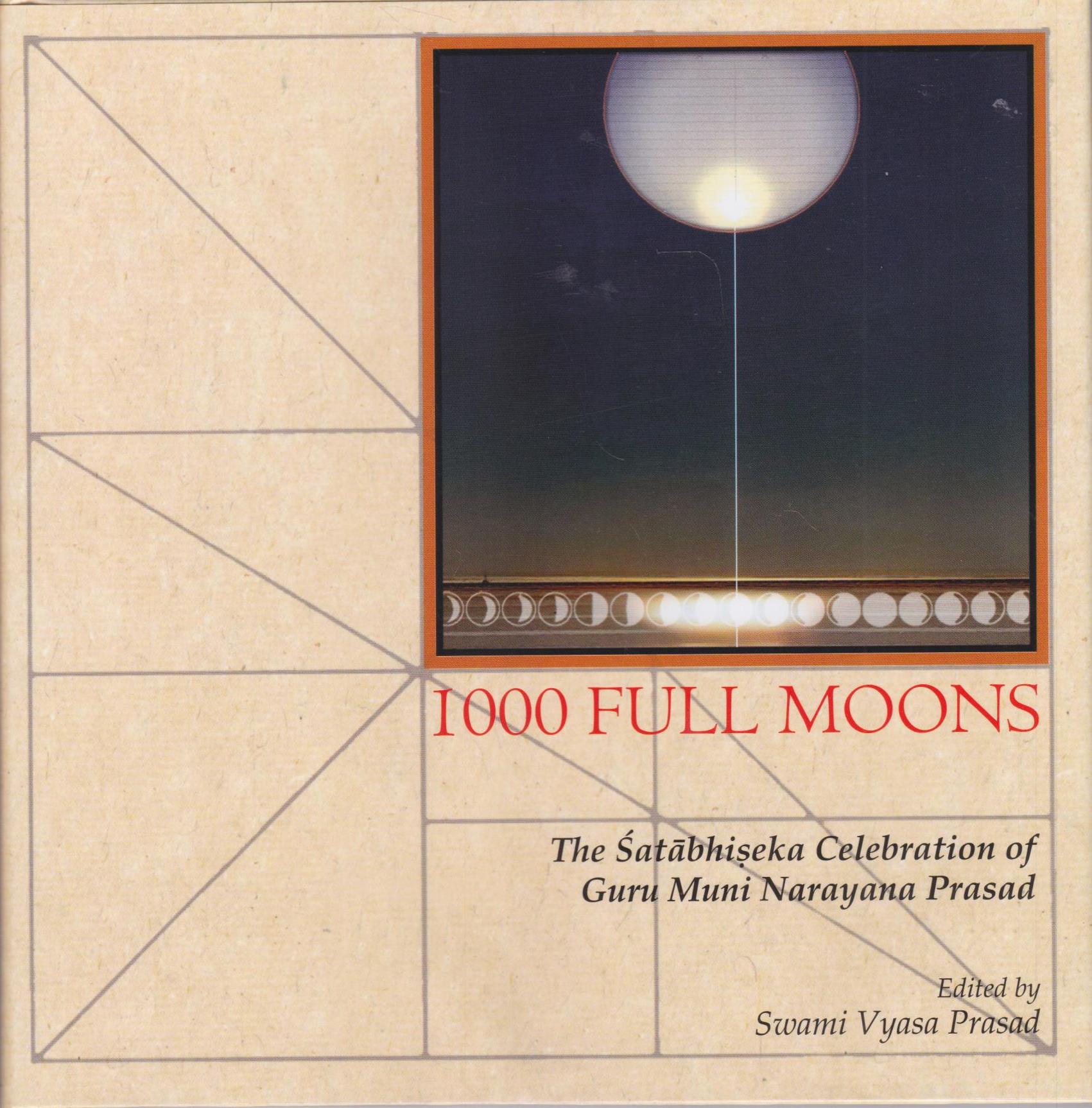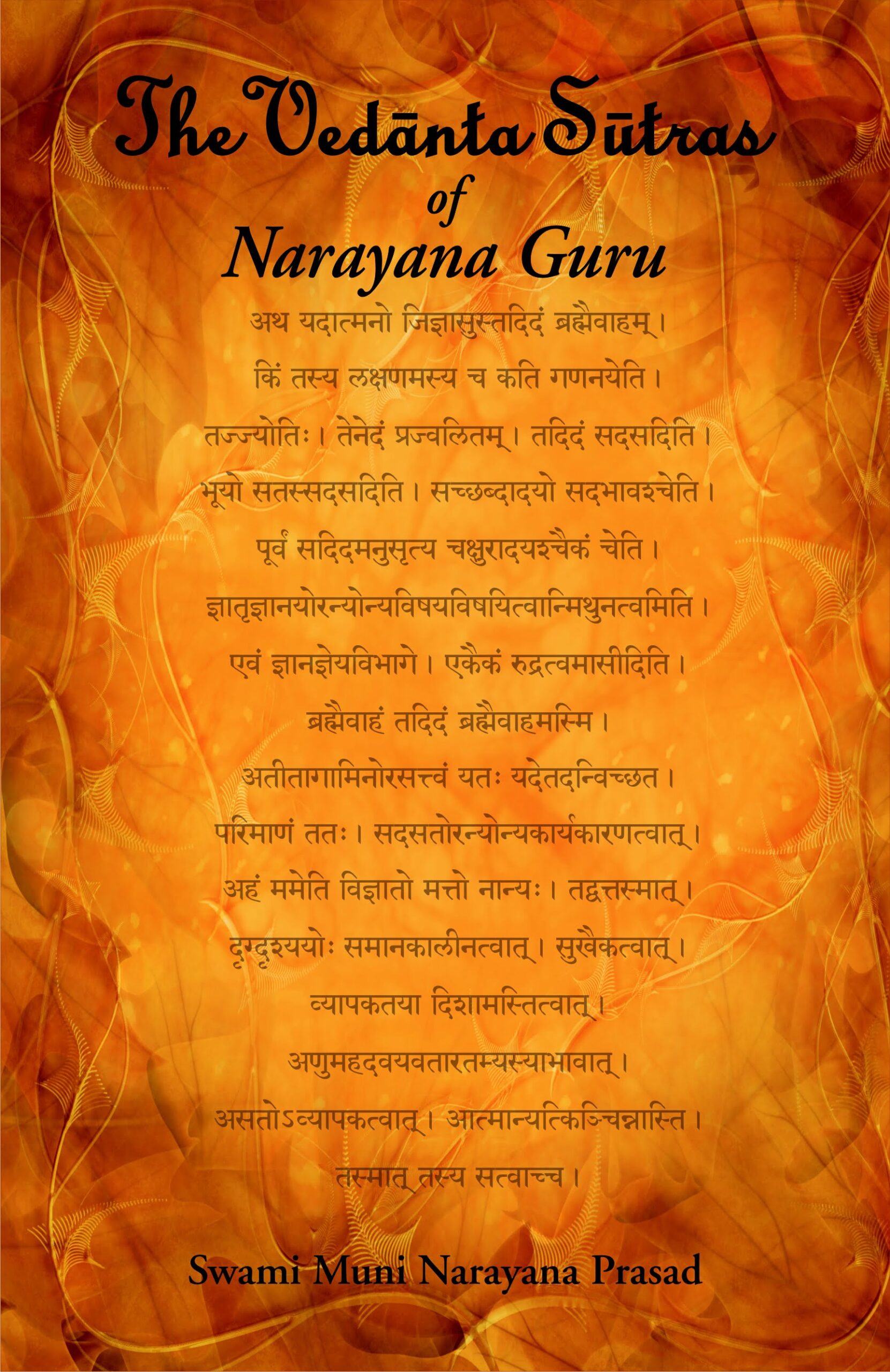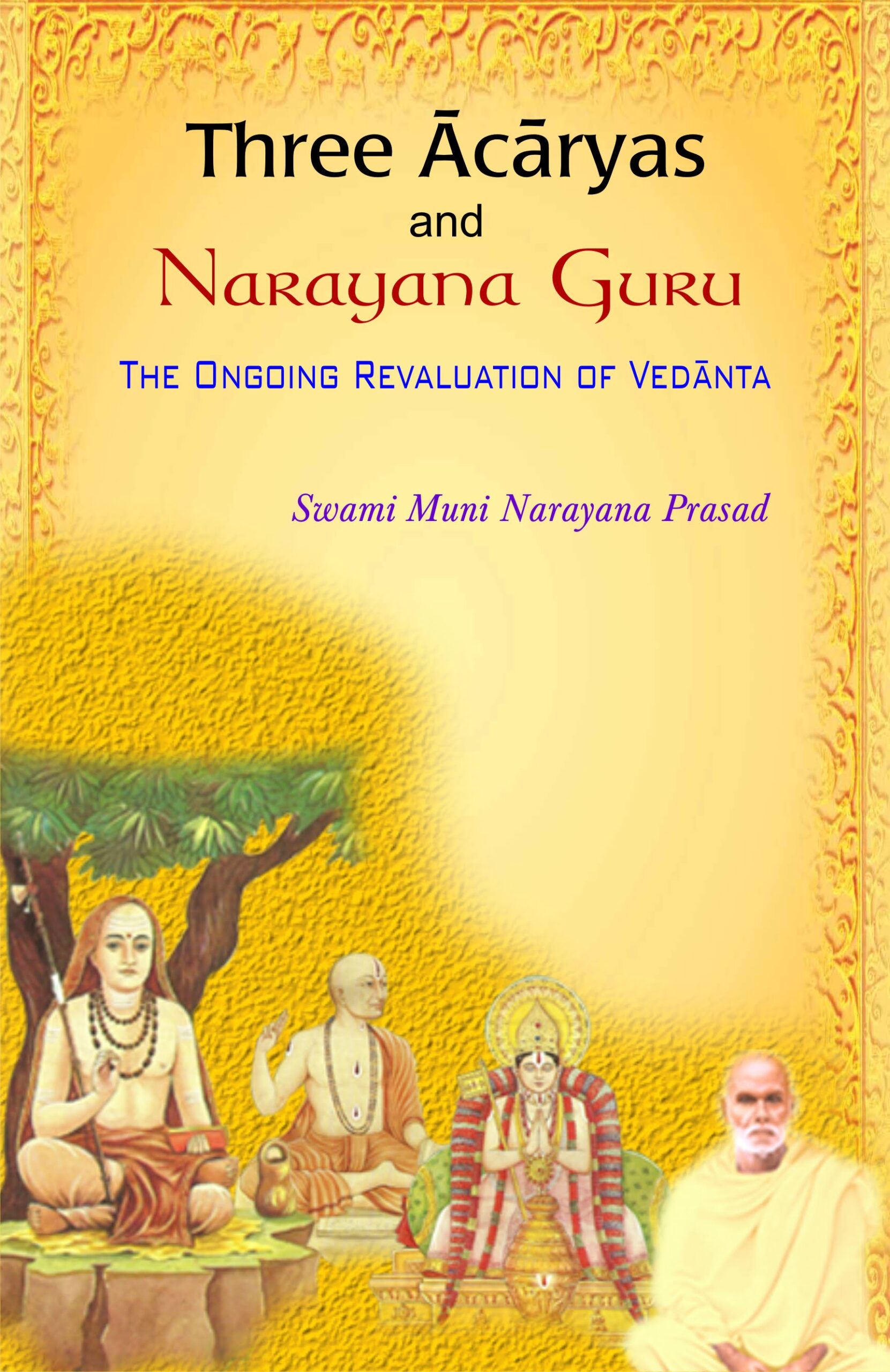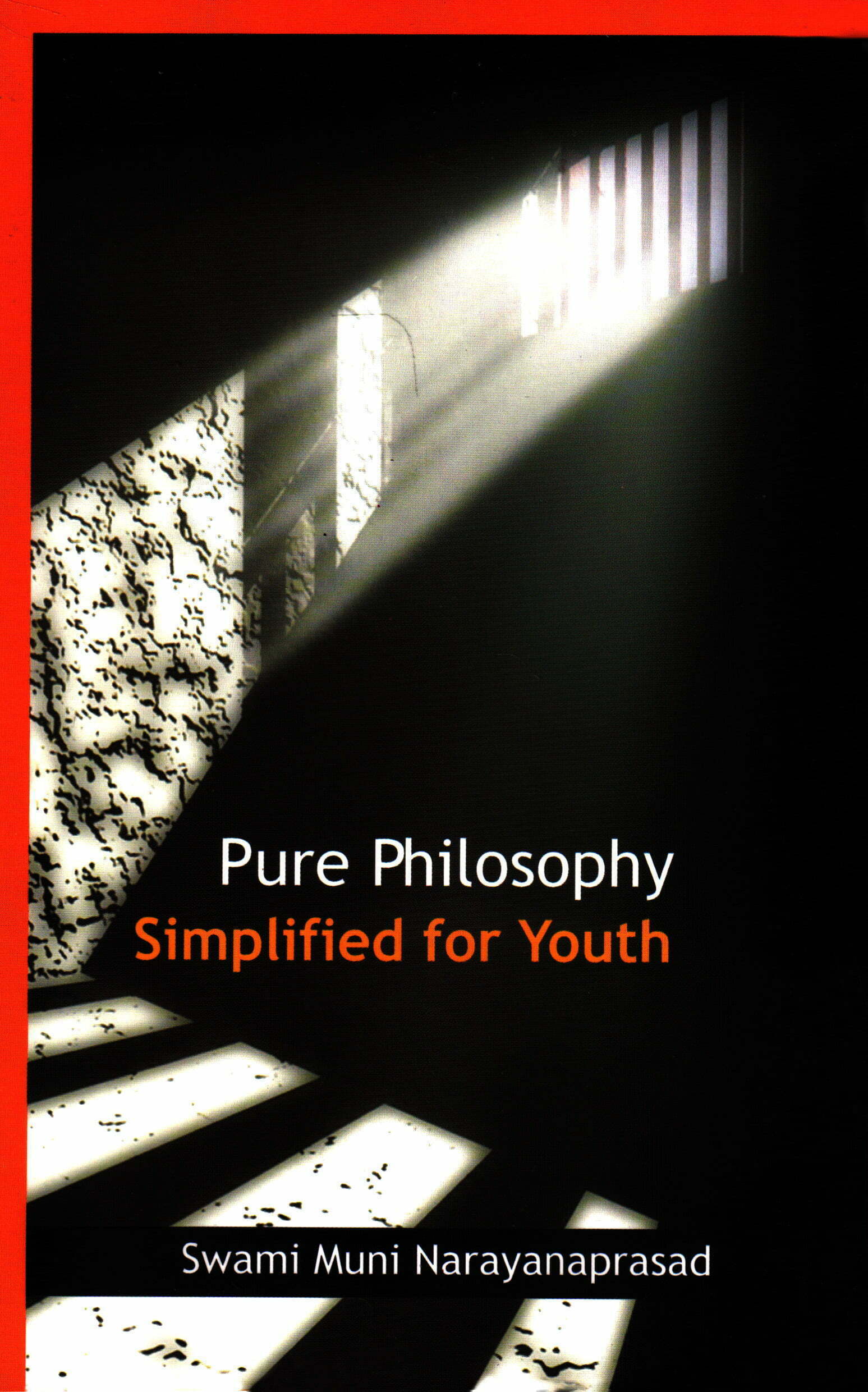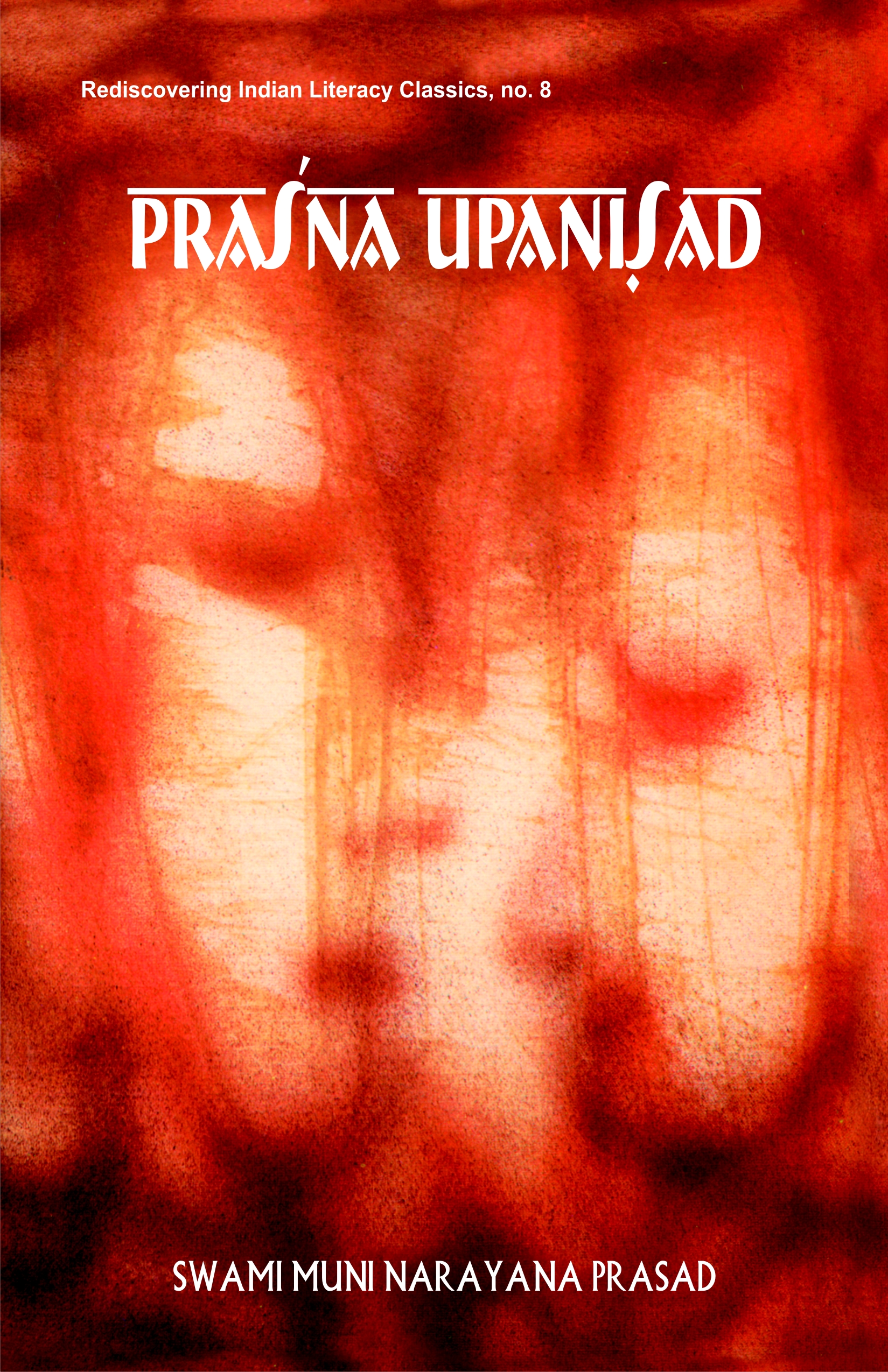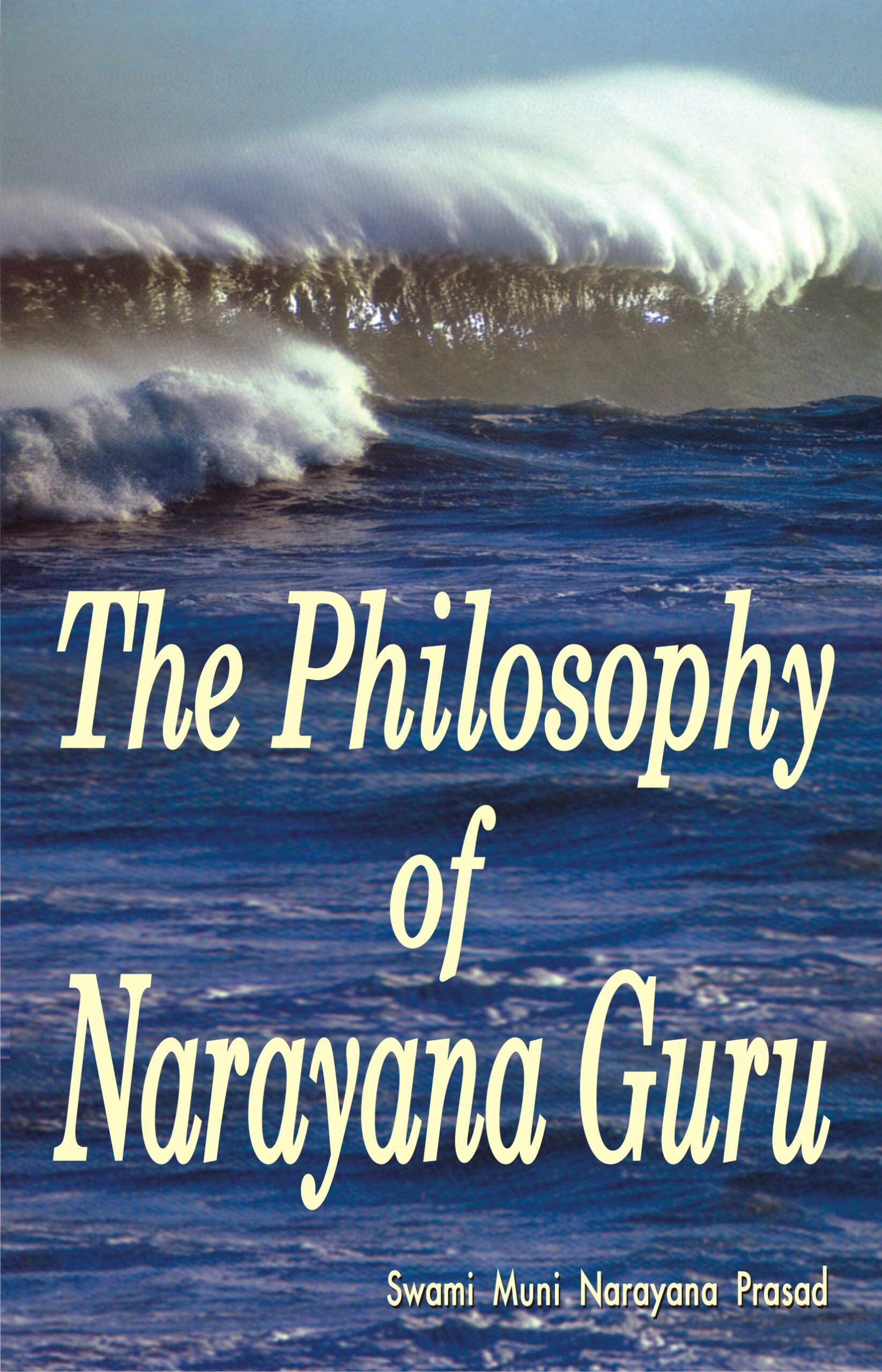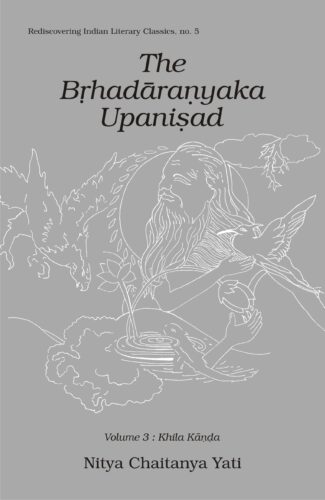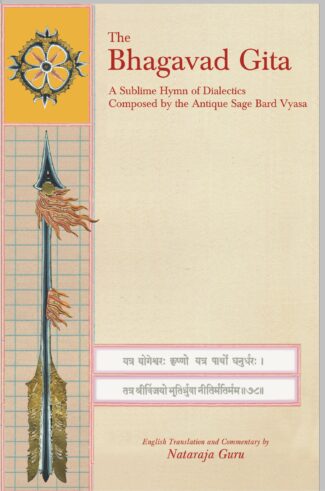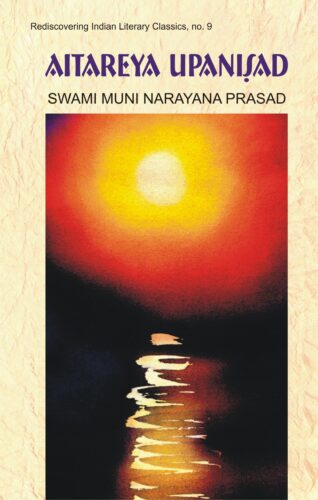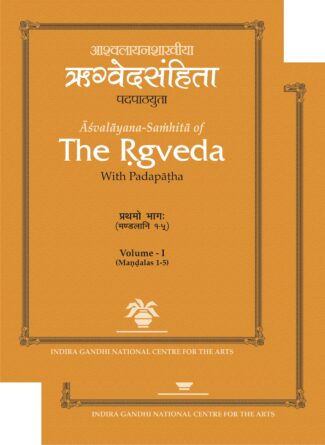-
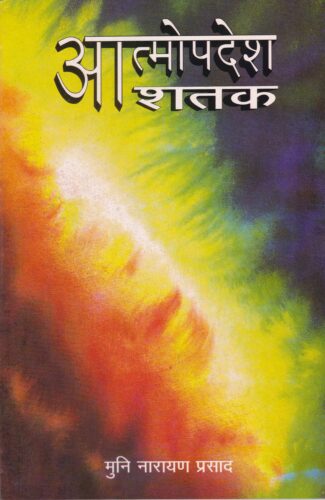
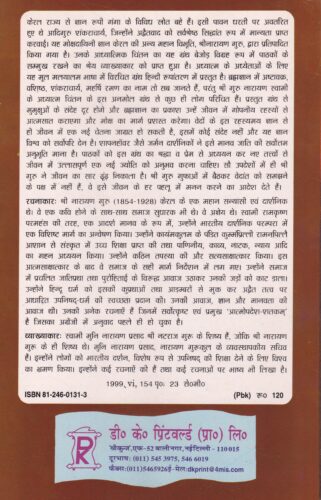
Atmopadesh Satak...
Atmopadesh Satak
One Hundred Verses of Self-Instruction by: Narayana Guru , Swami Muni Narayana PrasadAtmopadesa Sataka, mentioning one single principle, explains that mere virtue of gaining knowledge is not an end in itself. Its usefulness should be seen in the social, religious and veneration realms.
₹120.00 ₹108.00
ISBN: 9788124601310
Year Of Publication: 1999
Edition: 1st
Pages : iv, 156
Language : Hindi
Binding : Paperback
Publisher: D.K. Printworld Pvt. Ltd.
Size: 22 cm.
Weight: 200
Atmopadesa Sataka, mentioning one single principle, explains that mere virtue of gaining knowledge is not an end in itself. Its usefulness should be seen in the social, religious and veneration realms.

-
Sale!Brhadaranyaka Upanisad by: Nitya Chaitanya Yati
₹600.00₹540.00The Brihadaranyaka Upanishad is one of the ten major Upanishads. A dialectical narration that unabashedly stands up to the rational scrutiny of the modern mind, it is directed towards both the individual aspirant caught up in the dark morass of confusion and the philosophic thinker in search of rare pearls of wisdom from humanitys treasury. Guru Nityas matchles commentary will enable the reader to discover the ancient seers timeles insights, to appreciate a fully-developed, integrated system of thought, and, most importantly, to learn to connect with what is real and enduring in his or her own essence. Schematically, the Brihadaranyaka Upanishad a brilliant discourse from the Yajur Veda is set out in three volumes, entitled: Madhu Kanda, Muni Kanda and Khila Kanda. In his planned three-volume thorough-going, meticulously analytical commentary. Guru Nitya distills the wisdom teaching of the Brihadaranyaka Upanishad, drawing on his intimate understanding of the human psyche, as well as both Eastern and Western philosophy, science, art and literature. Dwelling in turn on each of its 435 mantras, its poetic charm, myths, metaphors, images and symbols, Guru Nitya recreates and expands the Upanishadic vision of our own nature, human interaction, and the cosmos, and their relation to the unmoved essence of all. With highly useful appendices and a comprehensive index, the commentary will hold an enduring appeal for both scholars and discerning readers.
-
Sale!Bhagavad Gita by: Nataraja Guru
₹850.00₹765.00Nearing its fiftieth year of being continuously in print, Nataraja Gurus monumental analysis of one of the greatest philosophical classics of Planet Earth is now available in a new edition. Generations have benefited from its unique angle of vision, which introduces a universal framework that does not depend on faith to impart its message of infinite potential for every human being. The Gurus wry humor, fresh insights, and fearless challenges to prevailing orthodoxies, are clear marks of his style. His analysis is radical by any measure, yet it must be noted that much of the scientific and philosophic community has evolved over the same half century toward a similar global, broad-minded outlook to the one which the Guru brings to bear in these pages, and which not coincidentally is advocated by the Bhagavad Gita itself.
-
Sale!Aitareya Upanisad by: Swami Muni Narayana Prasad
₹110.00₹99.00Yet another masterly piece of Hindu spiritual wisdom, Aitareya essentially reinforces the grand Upanishadic message which is neither a picturesque mythology nor a promise of heaven nor a threat of hell. It is yet another reminder (from the ancient seers) of our cosmic connection showing how this universe, this phenomenal world of ours, and all that is created, whether movable or immovable, are unfolded from one primeval casual Reality: atman, variantly called the Supreme Spirit, Pure Consciousness or Prajnanam Brahma; and how, in turn, atman perceives itself as the one underlying substance of all these phenomena. A distinguished exponent of Vedanta, Swami Muni Narayana Prasad reinterprets this Upanishad, developing refreshing insights into its textual discourse, its meaning, and its message. Also included in this critical commentary are its original Sanskrit text, Romanised transliteration, and verse for verse English translation. Appended to the Rigveda, Aitareya Upanishad comprises three chapters (IV-VI) of the Aitareya-Aranyaka which, in itself, is a continuation of Aitareya Brahmana. And as one of the principal Upanishads is invaluable as much to the discerning readers as to the scholars of Indian philosophy.
-
Sale!Asvalayana-Samhita of The Rigveda (2 Vols. Set) by: B.B. Chaubey
₹2,500.00₹2,250.00Among the twenty-one Sakha-Samhitas of the Rigveda, as mentioned by Patanjali, only seven Samhitas were known by name and among these too, only one Sakala-Samhita was available in printed form so far. Now with the publication of the present editon of the Ashvalayana-Samhita a complete picture of a new Sakha-Samhita will come to fore for the first time. In comparison to the Sakala-Samhita, the Ashvalayana-Samhita has 212 additional mantras among which some occur in the common suktas and others form 16 additional complete suktas. Among these additional suktas special mention may be made of Kapinjala-sukta (II.44), Lakshmi-sukta (V.88-89), Pavamana-sukta (IX.68), Hiranya-sukta (X.130), Medha-sukta (X.155) and Manasa-sukta (X.171).
The book in two volumes presents the full text of the Ashvalayana Samhita of the Rigveda with padapatha, marked with proper accent marks. The additional mantras of the Ashvalayana Samhita followed by their translation in English and Hindi are also provided at the end of the Samhita text.
In a detailed introduction of the text the learned editor has examined the existence of Sakha-Samhitas of the Rigveda as mentioned by the Puranas, Patanjali, Mahidasa and other authorities, scrutinising textual evidence in support of them. The focus is, however, on the Ashvalayana-Samhita, with a background on Acarya Ashvalayana and exploring the antiquity, treatment of accent and padapatha of the text by referring to various sources. -
Sale!Rasa in Aesthetics by: Priyadarshi Patnaik
₹990.00₹891.00The Indian tradition of criticism is over two millennia old. And its rasa theory has, from the beginning, essentially influenced authors, connoisseurs and art critics alike. First expounded sometime between the 1st century bc and the fourth century AD in the eminent aesthetician, Bharata’s Natya Shastra, rasa theory deals with the ‘emotive content’ of a work of art — how it is depicted, inferred and transmitted. Dr. Patnaik’s book is a unique effort that demonstrates, with diverse examples, the universality of this ancient theory and its applicability to modern Western classics. Elucidating afresh the concept of rasa and all its nine primary kinds largely on the basis of Natya Shastra of Bharata and the commentaries of the tenth-century aesthetician, Abhinavagupta, the book investigates the validity of rasa theory as an aesthetic, more specifically, a literary theory, and how its canons are applicable to modern Western literature as well as Chinese love lyrics and Japanese haiku poems. Dr. Patnaik’s transcultural exploration, thus, covers all major genres of literature — poetry, drama and fiction; and also major writers — Lawrence, Mayakovsky, Kafka, Camus, Conrad, Hemingway, Faulkner, Marquez, Eliot, Hesse, O’Neill, Ionesco, Beckett, Lorca, Neruda and several others. In emphasizing the universal validity of the rasa theory, the author considers certain modern problems relevant to text, meaning and readers’/audiences’ response as well. Very few are the examples of applied rasa theory even in Sanskrit and other Indian literatures, leave alone its application to Western creative writing. This book, with its bold framework and lucid style, should, therefore, fascinate the scholars of Indology, Indian aesthetics and, above all, comparative literary criticism.

